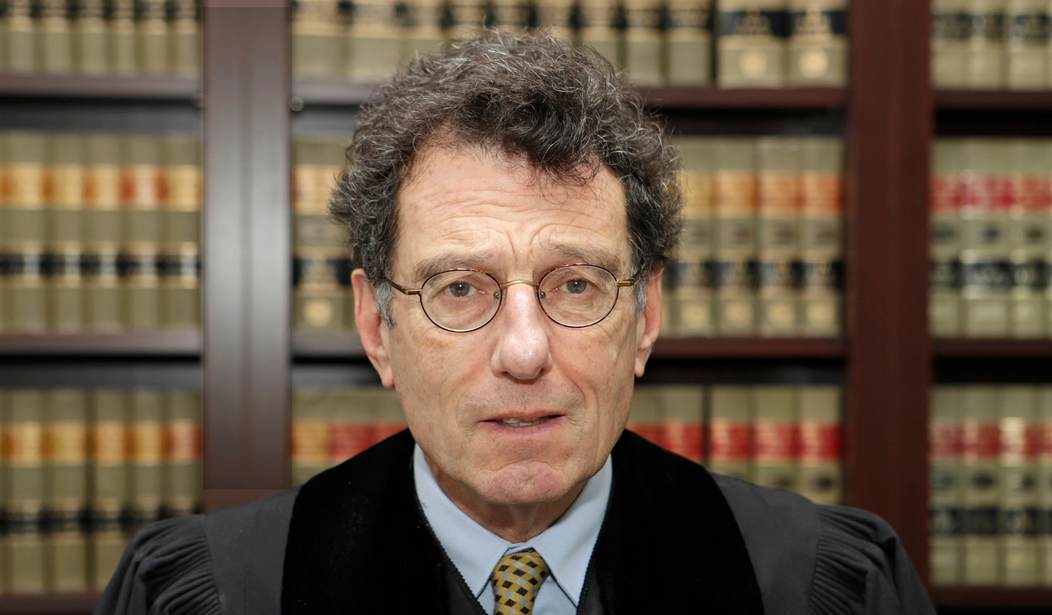The American system of justice is predicated on some basic, easily understandable principles: an individual has the presumption of innocence; an individual has a right to face his/her accuser; an individual has the right to trial in front of a jury of his/her peers, and guilt is only established in a criminal trial when there is no reasonable doubt.
And under tort law, a person or company is supposed to be subject to liability only for wrongfully causing harm.
Pretty simple. If you wrongfully cause harm, you become liable for damages to those who you have been proven to harm. This protects legal manufacturers and retailers from liability if someone misuses that product either criminally or through negligence if the product is legal to manufacture and it is sold in a legal manner, and the product performs as designed.
In the 1990s, federal judge Jack Weinstein attempted to turn this principle on its head by encouraging and hearing lawsuits against product manufacturers and retailers who followed the law and whose products performed as designed under a flawed legal theory that these lawful businesses were liable because of the criminal or negligent misuse of their products.
The absurd attempt to hold legal manufacturers and retailers liable for the criminal misuse of their products sent shockwaves through manufacturers ranging from the auto industry to firearm and alcohol makers. Fortunately, this legal theory was rejected, keeping the common tort standards of liability intact.
Unfortunately, trial lawyers have continually worked to expand the use of “public nuisance” law to land new targets for giant lawsuits. Now, a federal judge in Ohio, Dan Polster, has given these plaintiffs lawyers free reign in the handling of an opioid case using a radical redefinition of “nuisance” under tort standards as his platform to open a Pandora’s Box of litigation every time a car gets in a fender bender or a patient has an adverse reaction to a prescribed medicine. It is not disputed that people and businesses which illegally sell opioids are committing a crime, but when a pharmacy legally sells medicines to patients, they are conducting legal and necessary business.
Recommended
In Polster’s court, the “nuisance” standard that the judge is attempting to impose on legal pharmacies filling doctor’s prescriptions disregards the fact that the businesses are legally licensed to operate in the community they serve. The judge ignores that these businesses are located on property zoned for business activity and most importantly are not charged with illegally selling medicines containing opioids to people who don’t have a prescription from their doctor for obtaining them.
The activist judge is so invested in creating a unique nuisance legal precedent that he has attempted to bully pharmacies into settling cases where they have engaged in no wrong-doing. He has all but threatened them with potential bankruptcy if they do not settle. Beyond the obvious fact that this intimidation from the bench flies in the face of our basic precepts of a blindfolded justice system, the public nuisance doctrine that Polster is attempting to establish is dangerous.
Currently federal nuisance claims put significant requirements on the plaintiffs. Amongst other things, the plaintiffs have to prove that the defendant contributed in a significant way to the problem and are harming the rights of the public. Additionally, the plaintiffs would also need to prove the defendant is continuing to contribute significantly to a public nuisance today, and not just in past actions. Public nuisance was not intended to target businesses engaged in lawful activity.
Instead, Polster would impose a world where outcomes matter without regard to who caused the outcome.
Taking this out of the highly charged opioid debate, this is equivalent to charging Elon Musk in a nuisance suit because a TESLA driven and controlled by a drunk driver slammed into a parked car injuring its occupant. In fact, under this scenario in Judge Polster’s nuisance liability world, the alcohol maker could also be held liable for the injury rather than holding the actual criminal perpetrator accountable.
When viewed through this lens it is easy to see why Polster and plaintiff trial lawyers everywhere are salivating for this legal theory to take hold. And as usual it all comes down to money – and more and more targets to sue for that money. The drunk driver may not have much money and his insurance, if he has any, is limited in how much it is legally responsible to pay out. However, alcohol companies and certainly Elon Musk have deep pockets that can be picked. And that is exactly what Polster is trying to open the door to happening with pharmacies being his chosen foil.
It doesn’t take much imagination to see the legal mayhem that Judge Polster’s expanded tort liability standards would cause. It is imperative that the defendants in this case hold firm and not settle to end the persecution so a rational appeals court can put the wayward Polster’s nuisance theory on the scrap heap of bad legal ideas forever.

























Join the conversation as a VIP Member